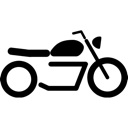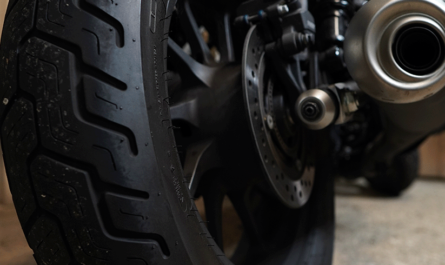So you want to learn how to ride a motorcycle. Fantastic!
Here are the few of the most important things you should consider when learning how to ride and making the new experience even more enjoyable.
Enroll in a Basic Rider Course
 The basic riding techniques and scenarios you can find in textbooks and YouTube are discussed better in the classroom of a motorcycle riding school. During the classroom instruction, you’ll bone-up on the theory of “how to ride”– from getting on the motorcycle properly, handling the controls, to the importance of defensive driving and avoiding hazards along the way.
The basic riding techniques and scenarios you can find in textbooks and YouTube are discussed better in the classroom of a motorcycle riding school. During the classroom instruction, you’ll bone-up on the theory of “how to ride”– from getting on the motorcycle properly, handling the controls, to the importance of defensive driving and avoiding hazards along the way.
Match that with the on-the-bike time and you’ve got a great program.
Time to Ride the Motorcycle
After the orientation courses, real practice riding a motorcycle will be done (most often in waves of class instruction followed-by on-the-bike instruction and practice). Students are taken on a safe riding range where you can practice what was learned from the instruction time. A variety of exercises are practiced for motorcycle handling including how to brake and downshift properly, and how to use the clutch. Muscle memory is also built up by repeating exercises until they would know how to handle a motorcycle properly.
Since this is the time to put into action what you’ve learn on the classroom, you need to have your own motorcycle. Some riding schools provide a motorcycle for practice but sometimes, you must bring your own.
Of course, do not forget to dress for the part when you are ready to get on the motorcycle. The riding school will teach you about the proper riding gear to wear as part of their campaign to make sure every motorist is safe on the road. You will be required to wear riding gloves, pants, leather jacket, boots, goggles and a helmet. During the rainy season, riders are advised to wear reflective and water resistant clothing. Remember that the number one rule in the road is to be seen. Get on these gear and you are on the right track!
After Completion of the Basic Rider Course
The Basic rider Course doesn’t end on the practice range. You’ll move on to the next step which is to perform a written exam and a riding evaluation. After passing both exams, in some locations you’ll be cleared to get your motorcycle certification.
Yes, motorcycling is fun, but it is also important to be extra careful. Bear in mind that you are entering a high risk activity. Taking this into consideration will make sure you a safe and efficient rider. Motorcycle training courses are there to make sure you are well-prepared of riding on your alone on all kinds of riding condition. It is also your ticket to getting a motorcycle driver’s permit, a proof to the police and the authority that you have the knowledge, skills and the ability to become a safe rider on the road.

